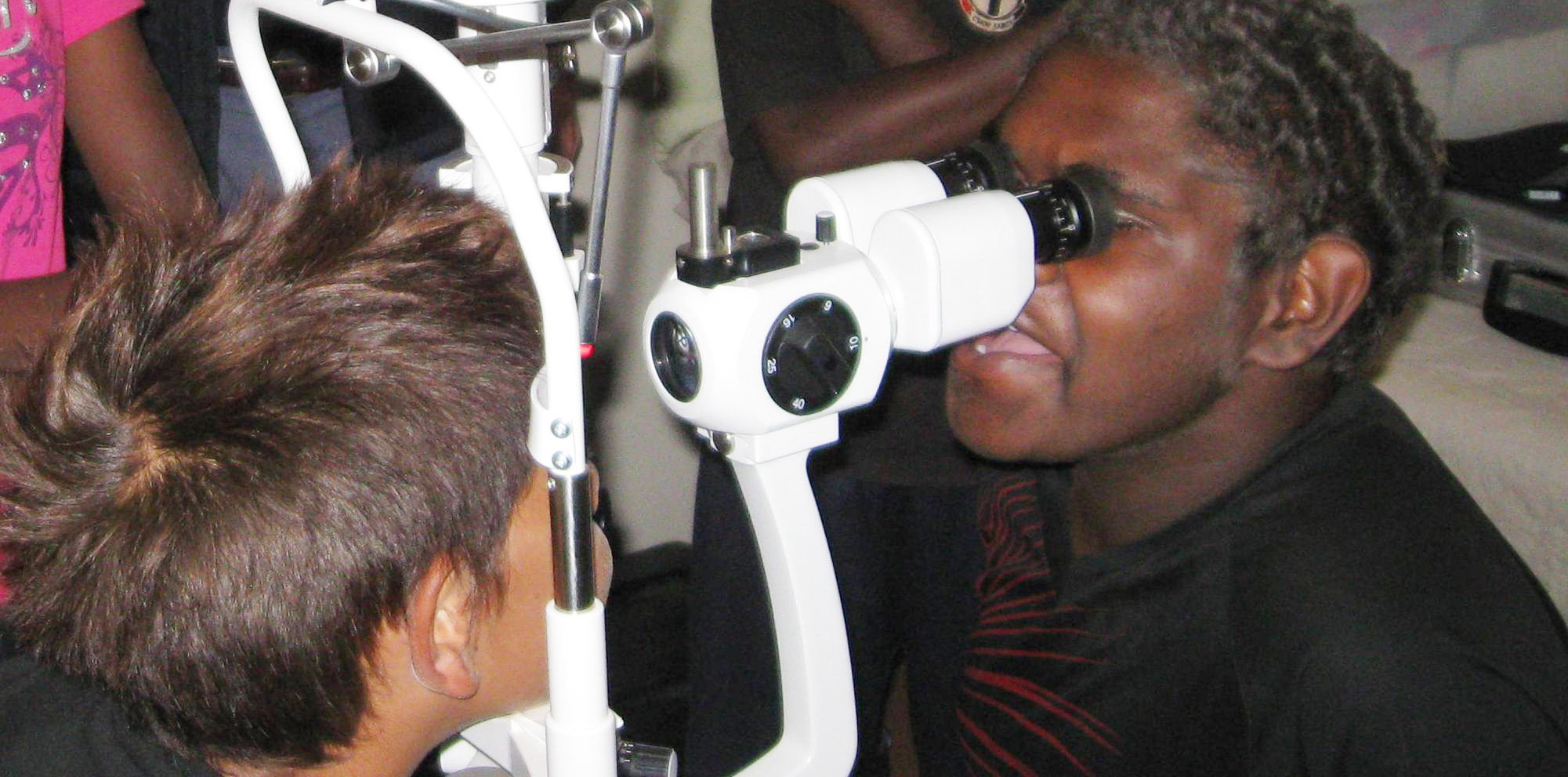1:30min

Image: Desley Culpin
______________________________
By Helen Carter
Optometry South Australia has recommended that a dedicated Indigenous component be established under the South Australian Spectacles Scheme (SASS) to specifically meet the needs of Aboriginal and Torres Strait Islander people in the state.
It also recommended that the operational and infrastructure parameters of SASS be urgently updated to appropriately support optometrists to provide a viable service under the scheme.
This includes establishing electronic claiming capability for optometrists and indexation of subsidised glasses aligned to market prices. From previous consultation undertaken with South Australia optometrists, a high administrative burden and government rebates not consistent with current costs were seen as barriers by many optometrists to participating in the scheme.
The recommendations were made by Optometry SA during its presentation to a South Australia Aboriginal Health Partnership (SAAHP) executive meeting in December 2014, held at SA Health. The SAAHP comprises representatives from SA Health, the Aboriginal Health Council of SA and the Commonwealth Department of Health.
Optometry Australia policy and advocacy adviser, Christopher Poulter, attended the meeting. He said the Optometry SA presentation highlighted the significant disparities experienced by many Aboriginal and Torres Strait Islander people in South Australia regarding access to prescription glasses, and put forward a case for significant improvements to the existing SA Spectacle Scheme to better meet the needs of Aboriginal and Torres Strait Islander people.
Optometry SA recommended that a dedicated Indigenous component of SASS offer broad eligibility criteria, provide cost certainty and be accessible to patients within Aboriginal Medical Services.
Mr Poulter said the presentation was well received and a detailed proposal outlining Optometry SA’s recommendations was requested by and given to the SAAHP.
Optometry SA also put in a joint state budget submission, with the Aboriginal Health Council of SA calling for the same recommendations.
Optometry SA will seek follow-up discussions with the SAAHP and the South Australian Government this year.
The December meeting resulted from a stakeholder roundtable discussion in July 2014, which identified key principles for a subsidised spectacles scheme that would improve access to prescription glasses for Aboriginal and Torres Strait Islander people in SA.
Mr Poulter said that the existing scheme covered only South Australian residents holding a current health care or pension card.
‘A survey by Optometry SA of South Australian optometrists highlighted that SASS was not meeting the needs of Aboriginal and Torres Strait Islander communities. They are slipping through the cracks,’ he said.
Participants in the July roundtable said there was no consistent approach to providing prescription spectacles to Indigenous people in South Australia and out of pocket costs were a barrier under the existing scheme. Other problems identified included lack of sustainable funding and inadequate monitoring measures to understand how many Indigenous people access the scheme.
They considered comprehensive consultation and engagement with Indigenous representative bodies and communities, such as the Aboriginal Health Council of SA, were essential to develop an Indigenous-specific scheme.
The principles identified by the roundtable group are consistent with national principles for subsidised spectacles schemes targeting Indigenous communities developed by Optometry Australia’s Aboriginal and Torres Strait Islander Eye Health Working Group.